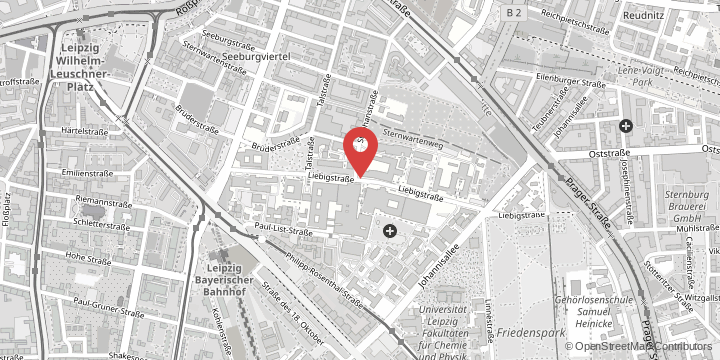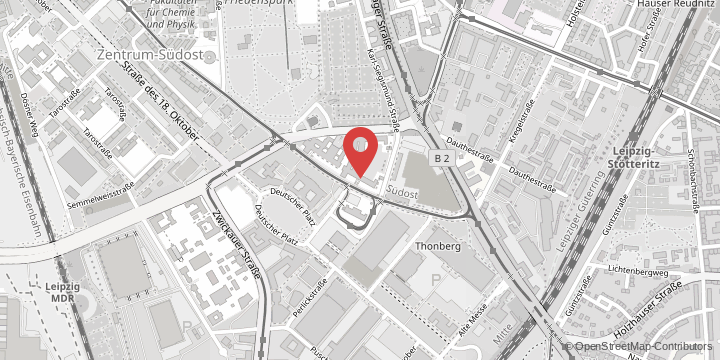Profile
Abstract
Miguel Mahecha is Professor of Environmental Data Science and Remote Sensing at the University of Leipzig and the Remote Sensing Centre for Earth System Research. His main scientific interest is understanding ecosystem responses to climate extremes and human-environment relationships during climate extremes. He also works on understanding macro-ecological dynamics and ecosystem functioning. His research is based on data-driven methods and high-dimensional Earth observations. In recent years, he has co-developed the concept of the Earth System Data Cube, which combines empirical methods with theoretical understanding to understand complex interactions in the Earth system. Miguel Mahecha is a member of the German Centre for Integrative Biodiversity Research (iDiv) and PI in the Centre for Scalable Data Analytics and Artificial Intelligence. He is a Fellow of the European Laboratory for Learning and Intelligent Systems.
Professional career
- since 03/2020
Full Professor for Modelling Approaches in Remote Sensing - 12/2012 - 03/2020
Leader of the research group: Emprical Inference in the Earth System, Max Planck Institute for Biogeochemistry, Jena - 10/2009 - 11/2012
PosDoc, Max Planck Institute for Biogeochemistry, Jena - 06/2006 - 09/2009
PhD studies, ETH Zürich - 10/2000 - 04/2006
Studies of Geoecology, Bayreuth University
- Responses of ecosystems to climate extremes
- Biogeography and ecosystem functioning
- Earth System Data cubes
- Earth System Data science methods
- show detailsDigital Forest - A real-time forest monitoring system for climate change impactsMahecha, MiguelDuration: 03/2021 – 08/2024Funded by: Stiftungen InlandInvolved organisational units of Leipzig University: Umweltdatenwissenschaften und Fernerkundung
- show detailsNFDI4BioDiversity: Biodiversity, Ecology & Environmental DataMahecha, MiguelDuration: 01/2021 – 12/2026Funded by: DFG Deutsche ForschungsgemeinschaftInvolved organisational units of Leipzig University: Umweltdatenwissenschaften und Fernerkundung; Spezielle Botanik und funktionelle Biodiversität
- show detailsExtracting spatiotemporal macroecological patterns using plant occurrence data crowd-sourced via Flora Incognita (Flexpool)Mahecha, MiguelDuration: 10/2020 – 09/2022Funded by: DFG Deutsche ForschungsgemeinschaftInvolved organisational units of Leipzig University: Umweltdatenwissenschaften und Fernerkundung
- show detailsXAIDA - eXtreme events: Artificial Intelligence for Detection and AttributionMahecha, MiguelDuration: 09/2021 – 08/2025Funded by: EU Europäische UnionInvolved organisational units of Leipzig University: Umweltdatenwissenschaften und Fernerkundung
- show detailsIntensive field measurement s "Leipziger Auwaldkran" & "Großpösna"Mahecha, MiguelDuration: 09/2021 – 12/2022Funded by: SMWK Staatsministerium für Wissenschaft, Kultur und TourismusInvolved organisational units of Leipzig University: Umweltdatenwissenschaften und Fernerkundung
- show detailsMahecha, M.; Bastos, A.; Bohn, F. J. et al.Biodiversity loss and climate extremes - study the feedbacksNature. 2022. pp. 30–32.
- show detailsMigliavacca, M.; Musavi, T.; Mahecha, M. et al.The three major axes of terrestrial ecosystem functionNature. 2021. pp. 468–472.
- show detailsWolf, S.; Mahecha, M.; Sabatini, F. M.; Wirth, C.; Bruelheide, H.; Kattge, J.; Moreno-Martínez, Á.; Mora, K.; Kattenborn, T. J.Citizen science plant observations encode global trait patternsNature Ecology & Evolution. 2022.
- show detailsBodesheim, P.; Babst, F.; Frank, D. C.; Hartl, C.; Zang, C. S.; Jung, M.; Reichstein, M.; Mahecha, M.Predicting spatiotemporal variability in radial tree growth at the continental scale with machine learningEnvironmental Data Science. 2022.
- show detailsCortés-Andrés, J.; Camps-Valls, G.; Sippel, S.; Székely, E.; Sejdinovic, D.; Diaz, E.; Perez-Suay, A.; Li, Z.; Mahecha, M.; Reichstein, M.Physics-aware nonparametric regression models for Earth data analysisEnvironmental Research Letters. 2022. 17 (5). p. 054034.
Current research questions in physical geography
-
12-GGR-B-PG01B: Fundamentals of Physical Geography/Geoecology II - Climate and Water
In this module we invite first year students to get familiar with basic concepts of climate geography and hydrology. Based on this foundation, we explore global patterns of terrestrial vegetation dynamics.
-
12-GGR-B-PG09.VL01: Landscape analysis, Resource protection, Risks and Impact Research
The lecture "Landscape Analysis, Resource Protection, Risks and Impact Research" focuses this year on the consequences of climate change in the different sectors, as well as the impacts of human influences on different types of geoecosystems. After an introduction to the current state of the climate crisis, consequences for different parts of the Earth system will be discussed at different scales.
-
12-GGR-B-PG06-S2: Current Research in Physical Geography
We will identify and analyse current global trends and transformation processes of terrestrial ecosystems. The starting point is an introduction to statistical properties of trends, their determinations, and possible problems. The aim is then to assess causes of global trends (e.g. "global greening", "loss of biodiversity", "droughts" etc.) and consequences for ecosystem functioning. At the end, interactions of global trends are analysed and synthesised.
-
12-GGR-B-PG06-S3: Research Methods in Physical Geography
The seminar "Research Methods in Physical Geography" accompanies the seminar "Current Research in Physical Geography". Based on the identified trends, a (possibly joint) research paper will be designed. This work is used to teach the "Code of Good Scientific Practice", forms of scientific publications, literature research, the review process, and even the basics of scientific writing.
-
12-GGR-M-GFP2: Geographical Information Systems - Models and Analyses
-
12-GGR-M-GFA1: Geodata analysis in economic and social geography
-
12-GEO-M-AG02: Earth System Components































































